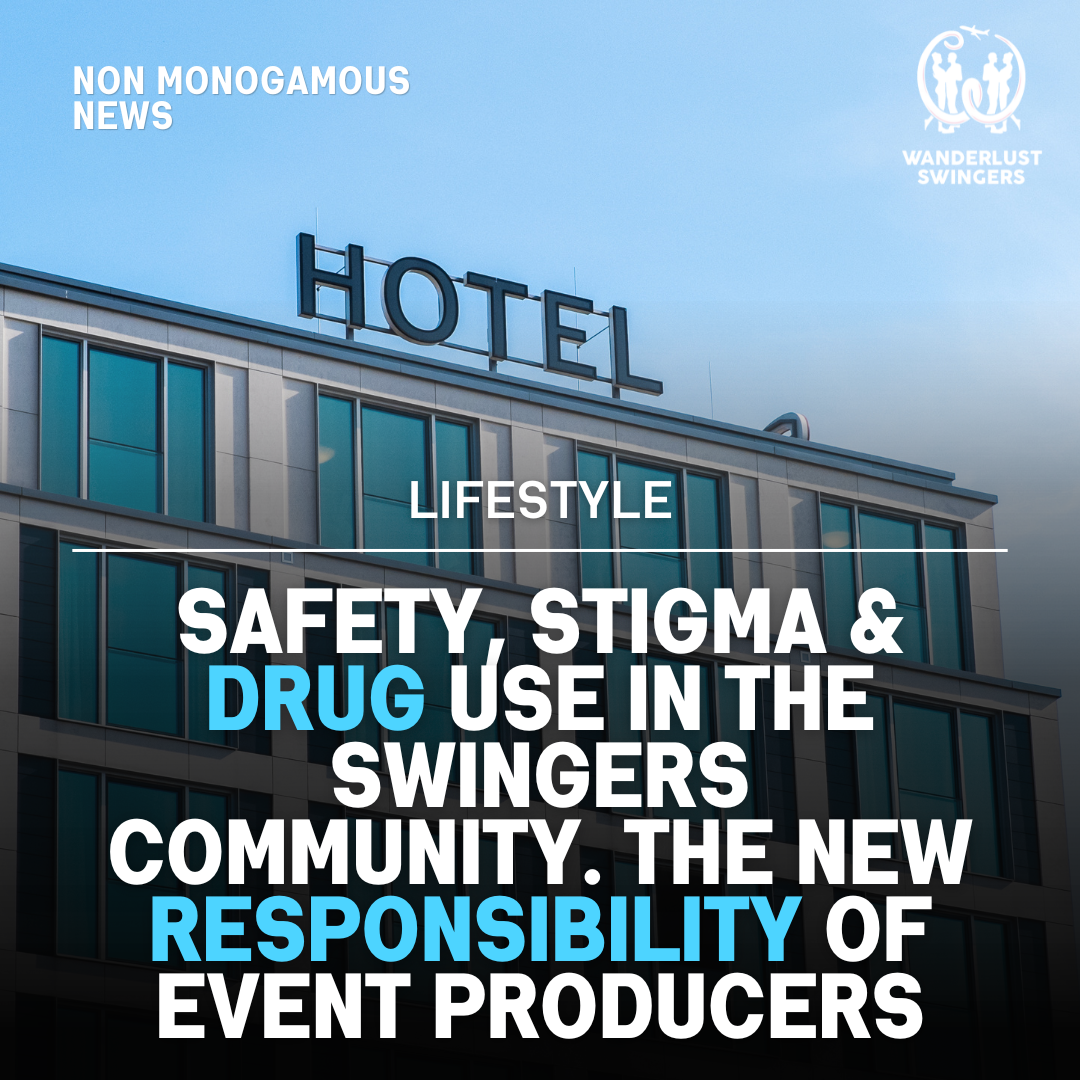Shakopee Swingers – 1st January 2025
The recent tragic deaths of two attendees at a lifestyle event in Shakopee have sent shockwaves through our community, raising critical questions about safety, stigma, and responsibility. As members of the non-monogamous and swingers lifestyle, it is imperative that we reflect on these incidents to ensure safer spaces, challenge harmful stereotypes, and equip event organizers with tools to handle crises effectively. Below, we delve into three pivotal areas: safety and responsibility, media coverage and stigma, and crisis management for event organizers.
Safety and Responsibility in the Lifestyle Community
Creating safe and supportive environments should be a cornerstone of every lifestyle event. As the host of the Wanderlust Swingers Podcast and organizer of Libertine Events hotel takeovers, safety is always my top priority. While the freedom and openness of these gatherings are celebrated, they also come with unique responsibilities—for organizers, attendees, and the broader community.
- The Role of Organizers in Safety Protocols As an event host, I take safety seriously. I require all my security personnel to be at least first-aid trained, and I always have Narcan onsite as part of our emergency preparedness. While it’s impossible to control individual behavior, having robust policies and resources can make a significant difference. For instance:
- Ensuring that hotel staff and security teams check in daily and maintain open communication channels.
- Providing harm-reduction resources like Narcan for opioid overdoses.
- Training staff on how to recognize and respond to medical emergencies.
- Mental Health and Harm Reduction Resources Partnering with mental health professionals and harm reduction organizations can provide attendees with access to support when needed. Workshops on mental wellness, consent, and substance safety should become staples of lifestyle events.
- Encouraging a Community of Care I’ve attended and hosted events globally, from lifestyle hotel takeovers to large festivals, and have seen drug use in both settings. As a community member, when I notice this, I am on high alert, often checking in with other guests even when I’m not hosting. Attendees play a crucial role in fostering a culture of care. Looking out for one another, being mindful of excessive substance use, and intervening when someone appears unwell can save lives.
- Practical Measures for Attendee Well-being At all Libertine Events, I ensure ample hydration stations are available throughout the venue. Hydration is a simple but effective way to prevent some health emergencies. I encourage other event organizers and club owners to adopt similar measures.
While we cannot control people’s behavior, we can take a page from festivals around the world. Perhaps it’s time for the lifestyle community to not only have Narcan onsite but also offer judgment-free, anonymous drug testing kits. In the new reality we live in, planning for the worst is a necessity.
Media Coverage and Stigma Surrounding Swingers and Non-Monogamy
The media’s portrayal of lifestyle events and communities often perpetuates damaging stereotypes. In the wake of tragedies, these portrayals can overshadow the nuanced and positive aspects of consensual non-monogamy.
- Critiquing the Language of Media Coverage Articles covering the Shakopee incident have been quick to sensationalize, using terms like “orgy” to evoke shock rather than understanding. Such language reduces complex communities to salacious headlines, further marginalizing those within them.
- Impact of Sensationalism Sensationalized reporting harms the lifestyle community by fostering stigma, discouraging open dialogue, and alienating those who might otherwise seek connection and support. For individuals who are not “out” about their lifestyle choices, this type of media coverage can be particularly damaging.
- Challenging the Narrative To combat this, lifestyle advocates and organizers must proactively engage with media outlets. Sharing accurate information about consensual non-monogamy and highlighting the positive aspects of these communities can shift the narrative. Educational campaigns and public-facing content can help bridge the gap between perception and reality.
Crisis Management for Lifestyle Event Organizers
Tragedies like the Shakopee incident underscore the importance of robust crisis management plans. Organizers must be prepared to respond effectively to emergencies while maintaining transparency and accountability.
- Developing Emergency Response Plans Every event should have a detailed crisis response plan, including:
- Access to medical personnel or EMTs onsite.
- Clear protocols for handling overdoses, including the availability of Narcan.
- Designated crisis managers trained to handle emergencies calmly and professionally.
- Transparency and Communication In the wake of an incident, honesty and clarity are vital. Coordinating with law enforcement and providing necessary attendee information is not only responsible but can also prevent further harm. At the same time, organizers should protect attendee privacy to the greatest extent possible.
- Learning from Past Incidents The Shakopee tragedy serves as a somber reminder of the unpredictability of events. Organizers must regularly review and update safety protocols, drawing lessons from past experiences to improve future events.
- The New Reality Fentanyl is a horrible drug, and it exists in recreational drugs. I urge my fellow event hosts to truly consider how they can best support their communities. Offering Narcan onsite, hydration stations, and drug testing kits may feel like extreme measures, but they are necessary steps in today’s world.
Resources for Safety and Harm Reduction
- Narcan Access and Training
- Drug Policy Alliance: Harm Reduction Resources
- National Alliance on Mental Illness (NAMI)
- RAINN’s Consent Education Resources
A Heartfelt Call to Action
The loss of life is always a tragedy, and our hearts go out to the families and friends affected by this incident. As a community, we must honor their memory by fostering safer, more compassionate spaces. Event organizers, attendees, and advocates must work together to ensure that tragedies like this become a thing of the past.
By prioritizing safety, challenging harmful stereotypes, and equipping ourselves to handle crises, we can create a lifestyle community that is not only vibrant and inclusive but also deeply responsible.

